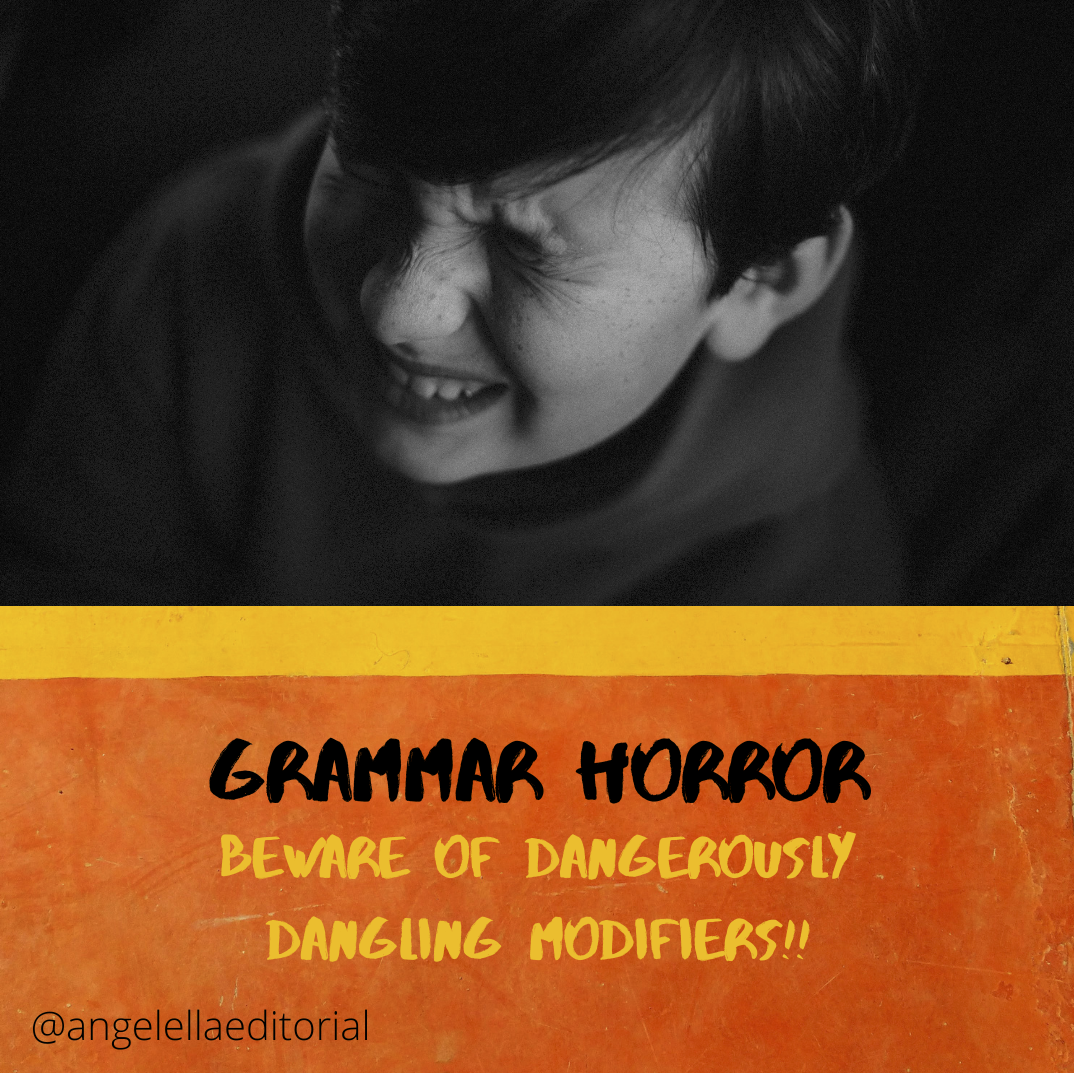Grammar Horror: The Dangling Modifier
If there’s one thing that scares me as a writer-editor, it’s the possibility of grammar errors creeping into my own prose. I’m the one who’s supposed to root out mistakes, but my first drafts can be as dashed-off and crappy as anyone else’s! There’s one tricky mistake in particular that gives me nightmares, because it’s so easy to overlook: the dangling modifier.
When I was a kid, the dangling modifier sounded like some kind of dangerous monster. (In fact, I swear I remember reading a poem about the dangerous dangling participle, accompanied by an illustration of a snake with giant fangs.) But actually, it’s a kind of misplaced modifier: a phrase or clause whose placement makes it appear to modify the wrong word. Sometimes misplaced modifiers can be funny:
I saw a dead skunk driving on the highway.
(Who knew that skunks could drive, let alone dead ones?)
A dangling modifier is a descriptive phrase that opens a sentence (dangles), only to be followed by the wrong subject. The noun it’s supposed to modify has been misplaced entirely:
Driving on the highway, two dead skunks appeared on the side of the road.
(Wait, now there are TWO zombie skunks driving?!)
Sure, you’re laughing now, because it seems like such an obvious mistake. But sometimes these dangling modifiers read so smoothly, you don’t even realize there’s a mistake:
Breath quickening, Sarah’s legs gave out and she collapsed.
(I’ve heard of trying to breathe through your eyelids, but through your legs?)
Gazing up into their gorgeous brown eyes, her heart stopped.
(Her heart has eyes that can gaze? A bit creepy…)
Eyes squeezing shut, fear crept through his body.
(If fear has eyes, it’s time to get really scared.)
In case you’re curious, these three examples are dangling participles, because that initial phrase contains a verb participle (quickening, gazing, squeezing). But you can have a dangling modifier without a verb participle:
As a famous local attraction, Melinda knew the aquarium well.
(Wow, Melinda is a famous attraction? I thought she was just my cousin.)
In a hurry to visit all the kittens, the pictures were taken quickly.
(Glad to know the pictures are as eager to visit kittens as I am!)
The happy ending to this scary story is that dangling modifiers are easy to fix. Just ask yourself, who or what is being described by that opening phrase? That answer needs to be inserted somewhere into your sentence.
You can substitute it for the original subject and rearrange the rest of the sentence to fit:
Driving on the highway, Bob saw two dead skunks appear on the side of the road.
Gazing up into their gorgeous brown eyes, Meg felt her heart stop.
In a hurry to visit all the kittens, the photographer took the pictures quickly.
Or you can add it into the opening phrase, along with a new verb or verb form:
Sarah’s breath quickened, her legs gave out, and she collapsed.
Alice’s eyes squeezed shut, and fear crept through her body.
Because it was a famous local attraction, Melinda knew the aquarium well.
Once you’ve had practice identifying misplaced modifiers, you’ll find it easier to spot them. You’ll become the hero of your own grammar horror story and won’t need an editor to swoop in and save the day! (But if you figure out what that dangling participle poem was, please let me know!)
Diane will discuss the finer points of grammar with you any time, as long as she’s not busy running away from zombie skunks driving cars. You can find out more about her editing services here.

